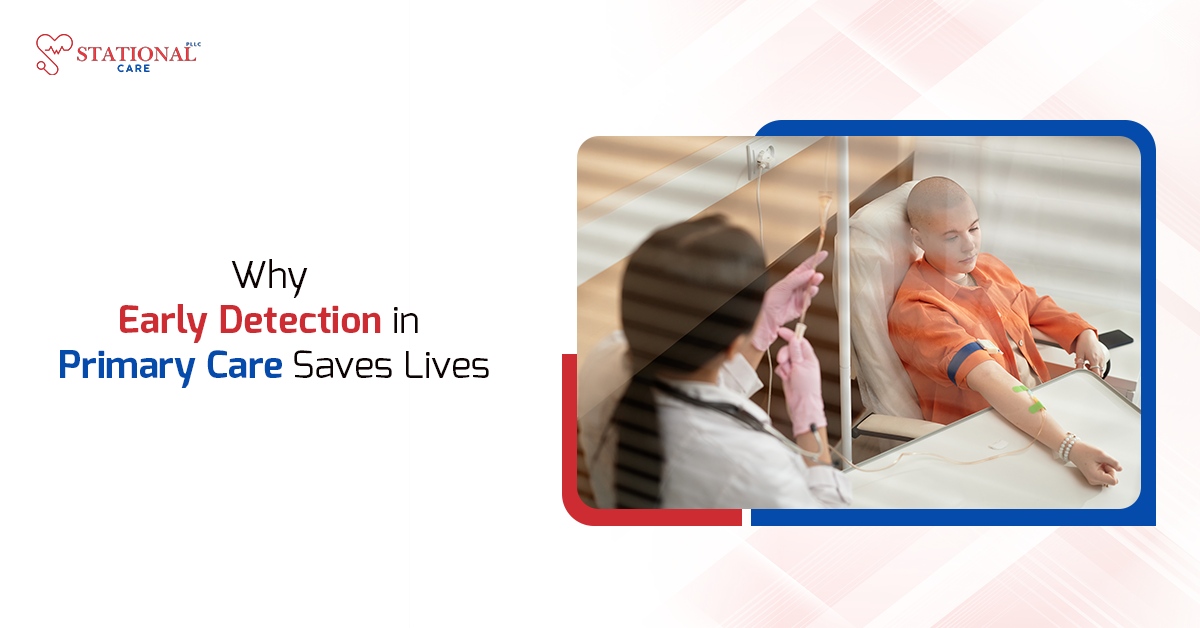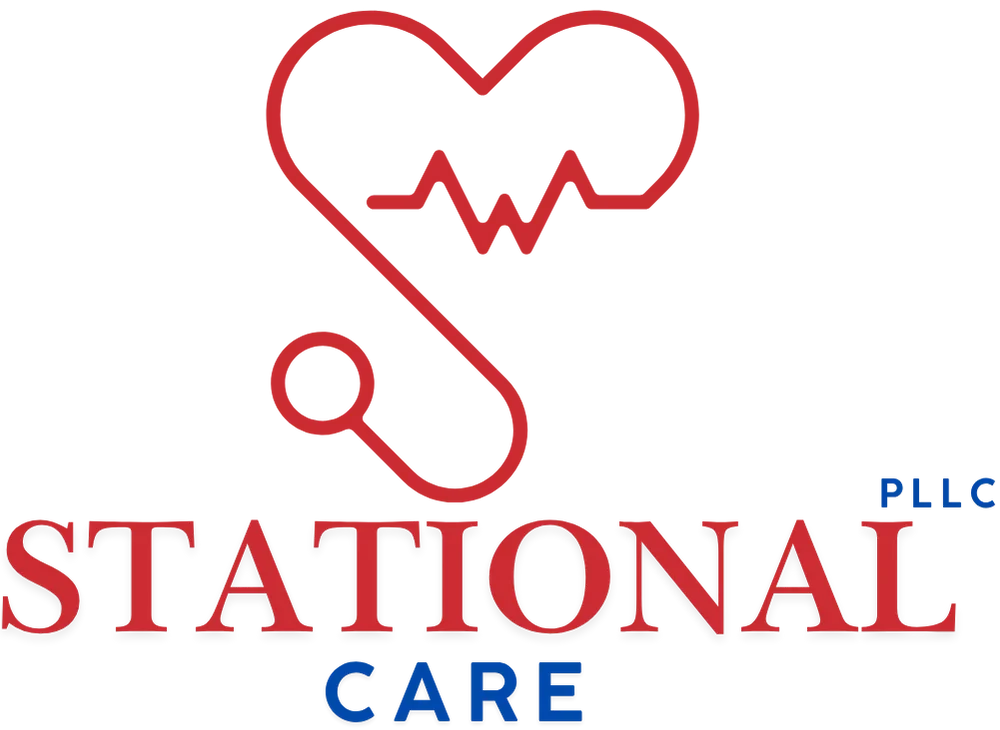Have you come across the phrase, “The sooner, the better”? In terms of your health, those words couldn’t be more important.
Often, life-threatening diseases such as cancer or heart disease start without noticeable symptoms.
You won’t notice any symptoms early on with these diseases, making managing them more challenging.
In these situations, it’s important to find issues as early as possible in primary care. It’s all about detecting health problems early, so they can’t turn into anything too serious.
Let’s look at the details more carefully.
What It Means to Detect Problems Early
It is possible to detect health issues at the beginning stage, without waiting for signs to develop.
It’s as if you catch a small crack in a house’s foundation before it becomes much bigger and damages the structure.
Your primary care provider (PCP) keeps watch over you, checking that your overall well-being doesn’t go missed.
Primary care helps you more than just treating your occasional sore throat; it means working with a doctor regularly to keep you healthy for years.
The Benefits of Early Detection in Primary Care
Managing your health ahead of problems offers numerous positive results. A few of the main advantages of early detection are as follows:
1. Spotting the Silent Issues
High blood pressure and diabetes often develop without causing intense or sudden symptoms.
Without treatment, they often lead to heart attacks, strokes, or other serious problems.
Early detection of these problems can be accomplished through routine care.
2. Developments in Treatment
Finding a problem early in treatment often gives you more options.
If cancer is discovered early, at Stage 1, it can often be managed with less severe procedures and a better recovery.
If an illness is handled early, it may be less risky for all those offering and receiving support.
3. Reducing Costs
We all know that healthcare is often costly. Managing a condition at its beginning is generally much more affordable than handling it once it becomes severe.
4. Enabling You to Take Positive Steps
With knowledge, you can do things that improve your health.
Screening and detecting diseases early will teach you to change your lifestyle, work with your doctor on treatments, and be attentive to preventive steps.
5. Better Prognoses
Finding issues quickly is often most valuable because there is a higher chance of solving them.
If problems are addressed early, chances of surviving cancer increase, and managing chronic diseases also becomes easier.
Why Primary Care Matters Here
Generally, you think of your PCP as someone you visit once annually, but they are actually at the heart of your health. How does early detection work through primary care?
- Routine Screenings
These tests include cholesterol, blood sugar, blood pressure, and cancer screenings such as mammograms and Pap smears. With these rapid tests, medical experts can catch any problems that might be unknown to you. - Building a Health History
If you visit regularly, your doctor can see any changes in your health over time. It’s kind of like keeping a record of your health journey. - Forming Comfort for Honest Conversations
If you trust your primary care doctor, you are encouraged to discuss even little things that might matter a lot. Noticing a strange pain in your chest? Dragging yourself from tiredness? You can go to your primary care provider if you ever need medical care.
At Stational Care PLLC, we view primary care as more than just healthcare.
It’s about human connection, trust, and personalized attention.
Through office visits or with our home-call services, our primary focus is cultivating relationships, supporting your health, and addressing issues early on.
The Ripple Effect of Early Detection
If one person’s life is saved through early detection, others are affected, too. No family has to suffer the loss of a loved one suddenly.
A healthy community means people within it are thriving. If health challenges are discovered early, everyone benefits, not just those needing treatment.
And it’s not about fearing worst-case scenarios; it’s about living in confidence, knowing you’re taking measures to stay well.
Why Waiting Is Risky
It’s easy to postpone a doctor’s visit or convince yourself, “It’s probably nothing.”
But waiting can allow minor issues to turn into larger ones. Maybe it’s a mole that changes shape but doesn’t seem alarming yet.
Or maybe it’s a subtle shortness of breath you’ve chalked up to stress. It’s better to address it now than regret it later.
Ignoring these signals can have consequences, so set aside fear or inconvenience. Instead, view regular check-ups as an investment in your future.
The Bottom Line
Life can feel busy. There are countless things on your to-do list. But caring for your health shouldn’t be pushed to tomorrow.
Early detection through primary care is not just preventative; it’s life-saving.
It provides peace of mind, reduces risks, and gives you the resources to stay ahead of potential health challenges.
Your health needs to be taken care of proactively, and that’s precisely what we focus on at Stational Care PLLC.
Whether your next appointment is for a checkup or chronic disease care, or you aren’t sure what to do, we can help wherever you are.
Book an appointment. Our experts can treat you either at our office or at your home.
FAQs
Why does early detection save lives, and what’s the importance of screening?
If we detect illnesses early, we can treat them more simply and with less delay. Catching health issues in the early stages is best done with regular screenings.
Why is it important for early detection?
- It saves lives
- Reduces healthcare costs
- Improves overall outcomes by intercepting diseases in their less advanced, more treatable stages
What are the advantages of early detection?
Being diagnosed early increases the chance of better care, fewer medical expenses and a better chance of surviving the disease. It calms the mind and gives you more control over your health.
How can early detection increase the chances of survival?
By catching a condition in its infancy, early detection allows for interventions that prevent progression, improving treatment success and prolonging life.


